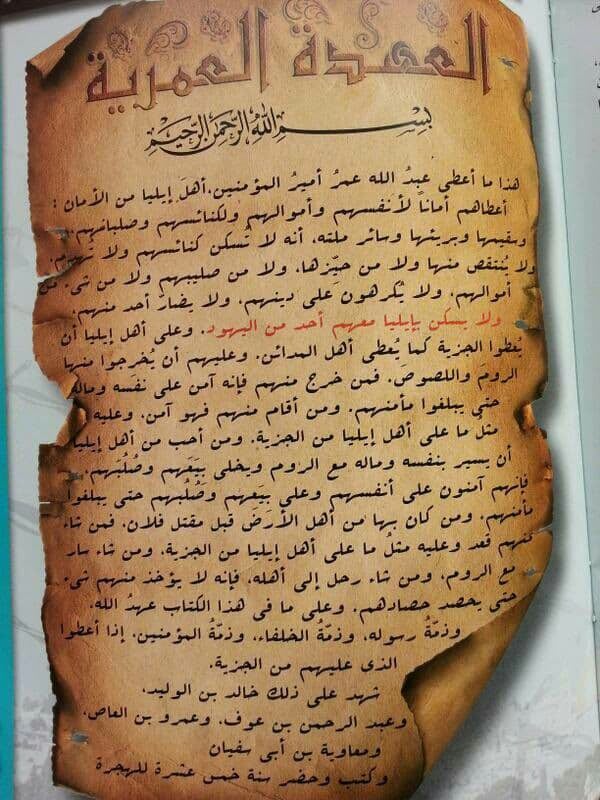The Covenant of Omar
Caliph Umar ibn al-Khattab wrote to the people of Elijah (Jerusalem) when the Muslims opened it in 638 ah a book in which he secured their churches and property, and stipulated that none of the Jews should live with them in the city. The age covenant has been considered one of the most important documents in the history of Jerusalem and Palestine. The text of the covenant is as follows.

"In the name of Allah, the Merciful, the merciful
This is what gave Abdullah, Umar, the Prince of believers, the people of Elijah of safety.. He gave them security for themselves, for their money, for their churches, their crosses, their beds, their innocence and all its other pleasures.. That their churches shall not be inhabited nor destroyed, nor their space, nor their cross, nor any of their property shall be lacking, nor shall they be coerced for their religion, nor shall any of them be harmed, nor shall any of the Jews dwell in aliyah with them.
And the people of Eliya should give tribute as the people of Mada'in give tribute. And they have to get out of it rum and thieves. Whoever comes out of them is safe for himself and his money until they reach their security. And whoever stays among them is safe, and therefore like the people of Elijah from tribute. And whoever of the people of Elijah loved to walk by himself and his money with rum and abandon their sale and crucifixion, they are safe for themselves and for their sale and crucifixion until they reach their security. Those who wish to do so will receive the same kind of tribute as those who wish to pay tribute. It's a delightful thing with rum. And whoever wishes to return to his people, nothing will be taken from them until he reaps their harvest.
According to what is in this book The Covenant of Allah and the edema of his messenger and the edema of the caliphs and the edema of the believers, if they give the one on which they owe tribute.
He wrote and attended the fifteenth Hijri year.
This was witnessed by: Khalid ibn al-Walid, Abd al-Rahman Ibn Auf, Amr ibn al-As and Muawiyah ibn Abi Sufyan."
